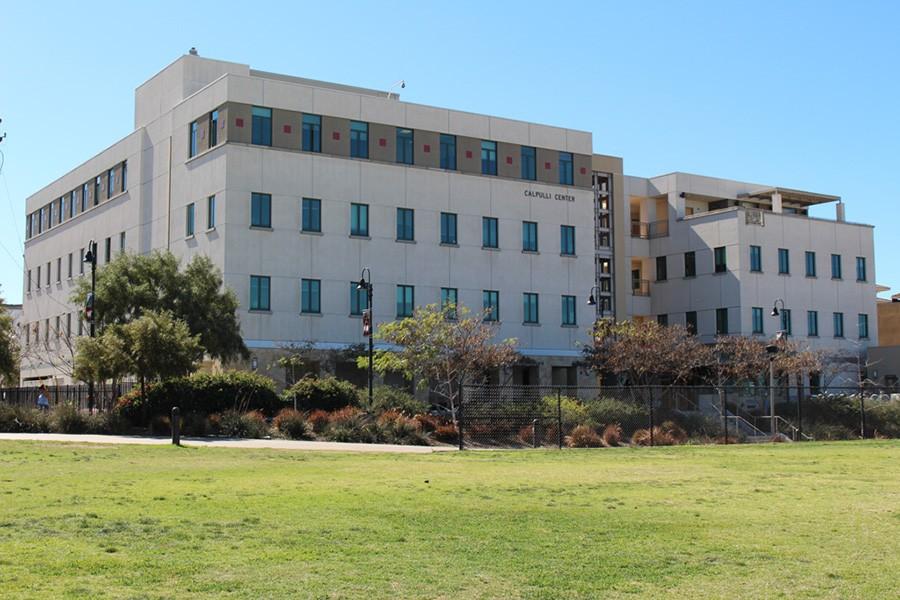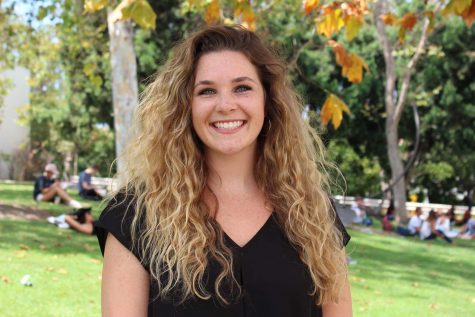Students in violation of alcohol- or drug-related offenses on campus are often subject to complete the Alcohol and Substance Prevention Intervention Redirection Effort program, or ASPIRE, as part of their disciplinary action.
Through ASPIRE, students mandated to complete the program are required to meet three times with a trained counselor.
The Counseling and Psychological Services website describes these one-on-one meetings as opportunities for students to discuss lifestyle choices in regards to alcohol use, learn about drinking and drug trends at San Diego State, and build emotional intelligence.
Depending on the case, most students are put on temporary probation and are required to complete ASPIRE. The first requirement in registering for ASPIRE is a $100 fee.
“There is a fee for service, so you can’t have the service without having the fee,” Counseling and Psychological Services Director Jennifer Rikard said.
The fee was developed with the intent of benefiting students mandated to complete ASPIRE without taking away the regular services voluntary students would be seen for.
Co-coordinator of the ASPIRE program Leslie Wilson said this service fee goes toward the hiring and staffing of ASPIRE counselors.
“If someone voluntarily comes to the center and they voluntarily want to be seen for depression, alcohol use, drug use or anxiety, there is no fee for that,” Wilson said.
“We wanted to know how we could have a positive series of conversations with students in ASPIRE and how we could fund that in a way that doesn’t take from the regular services we would see a student for.”
When a student receives their settlement agreement from their judicial officer, a strict deadline is given.
The settlement agreement outlines the exact date when a student must complete the ASPIRE program, and it outlines an exact date when a student must schedule their first ASPIRE session.
The settlement agreement states that failure to complete the program will result in immediate suspension.
However, in order to schedule the initial ASPIRE session, students must pay the $100 payment in its entirety.
Sophomore Miranda received a policy violation during spring semester 2015.
For anonymity, she preferred to not give her last name.
Miranda was told during a phone call with the Office of Student Rights and Responsibilities in May that she should expect to know what her disciplinary action was during the first weeks of summer.
Instead, she received her settlement agreement on Aug. 21 of the following school year.
Since the settlement agreement outlines strict deadlines, this meant Miranda had to pay the fine within the first week of school.
“I felt that an earlier request would have been better because having a sudden $100 bill due during your first week of classes is really hard for most students,” Miranda said.
Typically, students are given anywhere from one to four weeks to pay the $100 fee and begin their first ASPIRE session.
Wilson said when the ASPIRE program was first created, a student board known as the CFAC committee decided to not provide ASPIRE students with a fee waiver.
However, with the short time frame given to pay the ASPIRE fee, there’s a logical question:
What would happen if a student could not meet the given deadline in time?
“(Counseling and Psychological Services) does not have anything to do with the mandate or time frames,” Wilson said.
“We just want to provide the student with a series of conversations and to look at where they are in their life, where they want to go and how substance use can play a part in their lives today.”
When a student receives a violation, they are required to meet with a judicial officer to discuss their disciplinary actions.
Student offenses could include violations like possession of alcohol in the residence halls or intoxication on campus.
Rikard said the judicial offices are responsible for creating deadlines and Psychological Services is only responsible for the counseling sessions.
“I would imagine the judicial office would give a different sanction if a student could not meet a deadline,” Rikard said.
The Daily Aztec was not able to reach the judicial office for an interview or comment.
Some students feel as though the required ASPIRE payment feels more like a fine rather than a fee.
“I think the fee was too high,” Miranda said. “My experience with the ASPIRE counseling sessions was only positive, but it was hard for me to come up with $100 so quickly. “
Counseling and Psychological Services referred The Daily Aztec to the judicial offices for ASPIRE questions they did not know, and the judicial offices referred back to Counseling and Psychological Services for questions they did not know, as well.
If a student mandated to complete ASPIRE could not meet their deadline and pay for the program, what consequences could occur?
The answer continues to be unclear.












